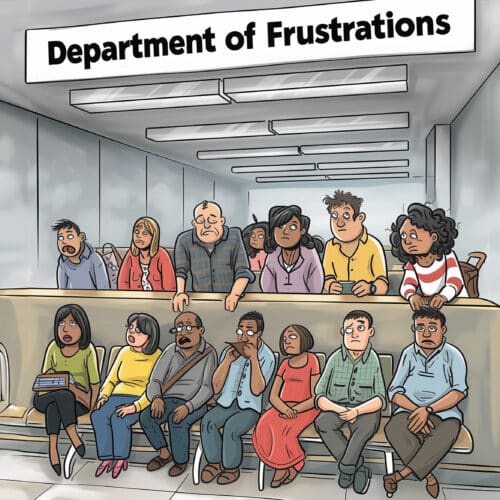“Out of clutter, find simplicity. From discord, find harmony. In the middle of difficulty lies opportunity.”
– Albert Einstein
The Six Types of Working Genius© and The Five Dysfunctions of a Team©, invented by author Patrick Lencioni, are powerful frameworks that help teams improve their performance and achieve their goals. Understanding how these two models intersect will help you lead your people into better dialogue and more compelling, productive meetings by nurturing the habit of healthy ideological debate.
A Brief Overview of the Two Models
 The Working Genius model provides clarity and a sense of meaning and purpose to team members by helping them understand which of the 6 stages of work are their “sweet spots” on any project. Everyone has 2 of these Geniuses as their strongest suit and the type of work that gives them energy and a deep sense of accomplishment. Leveraging these sweet spots is the point of the Working Genius model. The Six Types of Working Genius include:
The Working Genius model provides clarity and a sense of meaning and purpose to team members by helping them understand which of the 6 stages of work are their “sweet spots” on any project. Everyone has 2 of these Geniuses as their strongest suit and the type of work that gives them energy and a deep sense of accomplishment. Leveraging these sweet spots is the point of the Working Genius model. The Six Types of Working Genius include:
- Wondering – asking the “big” questions about the possibilities on the horizon and helping us identify where to focus our efforts
- Inventing – responding to the big questions with novel ideas
- Discerning – quickly and accurately evaluating the workability of ideas and improving them by identifying gaps
- Galvanizing – inspiring others to prioritize new ideas, projects, efforts, and to pull together
- Enabling – ensuring that any project is set up to succeed with the right people in the right roles with the resources they need on their terms
- Tenacity – removing obstacles to successful completion and executing work as promised
Improve Decision MakingLeverage the Working Genius model to bring balance to your team
 The Five Dysfunctions of a Team focuses on how human beings interact when endeavoring to accomplish a common goal and how to overcome the most common obstacles to success. It provides a roadmap for leading high-performing teams that is simple to understand but impossible to achieve without both understanding and acting to nurture the following 5 behaviors:
The Five Dysfunctions of a Team focuses on how human beings interact when endeavoring to accomplish a common goal and how to overcome the most common obstacles to success. It provides a roadmap for leading high-performing teams that is simple to understand but impossible to achieve without both understanding and acting to nurture the following 5 behaviors:
- Trust – based on the vulnerability of each team member to ask for help, admit mistakes, and rely on their respective talents (i.e., Working Geniuses)
- Healthy Conflict – ideological debate that flushes out the best ideas because people do not take the debate personally or make conflict personal
- Commitment – alignment to fully vetted (debated) ideas even when disagreement still exists because everyone has been heard with respect, and the good of the team is paramount
- Accountability – based on commitments everyone has agreed to, unflinching and direct communication among team members (not just through the boss) about meeting those commitments and “pulling our weight”
- Attention to Results – everyone is geared to contribute to the team’s collective success rather than individual glory and agendas
Build High-Performing TeamsLearn how the Five Behaviors model can enhance your team’s effectiveness.
How all of this Intersects with Healthy Debate
 These two models intersect and, when combined, can supercharge any team leader’s effectiveness. One such intersection involves noticing when your team is in the Inventing and Discerning phases of any project. This means that Genius No. 1 – Wondering about what the team should focus on next, is mostly done, and you’ve landed on Genius No. 2 – Invention, which means you are generating ideas for solutions. These ideas need vetting, filtering, and clear-eyed prioritizing. That’s where Discernment (Genius No. 3) comes in – The Discerner weighs in to evaluate and reject or improve ideas before they get fully activated and implemented.
These two models intersect and, when combined, can supercharge any team leader’s effectiveness. One such intersection involves noticing when your team is in the Inventing and Discerning phases of any project. This means that Genius No. 1 – Wondering about what the team should focus on next, is mostly done, and you’ve landed on Genius No. 2 – Invention, which means you are generating ideas for solutions. These ideas need vetting, filtering, and clear-eyed prioritizing. That’s where Discernment (Genius No. 3) comes in – The Discerner weighs in to evaluate and reject or improve ideas before they get fully activated and implemented.
To understand fully what is going on in this ideating/evaluating stage of work, a team leader must also fully acknowledge that this is the time to encourage Healthy Debate, which can only occur when team members trust each other enough to show their weaknesses and flaws. Too often, leaders quickly push for Commitment before the Discerners on the team have fanned the flames of Healthy Debate that ensures the very best work possible will emerge from the process. Rather than attempting to drive consensus, leaders who understand how to get to the best answers will recognize and encourage team members to express their opinions, learn from others, and ultimately arrive at the best solution. Healthy Debate is necessary to avoid groupthink, ensure that all ideas are considered, and foster creativity and innovation. During this stage, creating a safe space for team members to express their opinions without fear of retribution or criticism is crucial. Discerners will feel unwelcome to share their opinions in this stage if they are not welcomed and invited; rather than treating them as “negative” or “overly critical,” ask them for their ideas on what’s wrong with the new ideas and what can be improved!
It’s important to note that the bridge between Invention and Discerning, between ideating and activating a solution or invention, can be very uncomfortable. Debate can even be contentious, as team members may be passionate about their differing views and opinions. This is where leaders often step in to smooth out the edges instead of recognizing that debate is good, as long as it’s not toxic and personal. It is the leader’s job to hold Healthy Debate in place until the idea is fully vetted – it is not a leader’s job to promote false harmony and thus squelch the formulation of the best ideas.
So go forth and spar, debate, clash, and gnash teeth as long as you must until all perspectives have been aired. Then and only then, if disagreement still prevails, it’s time for the leader to call it and make a decision. And it’s time for everyone to get behind that decision, regardless of whether it went their way. We’ll discuss Commitment in another blog. Until then…
“I’m allergic to confrontation. That’s why I need everyone to agree with me.” – Ellen DeGeneres
Get Expert GuidanceContact PointerWise for personalized strategies to manage Working Genius Frustrations.






